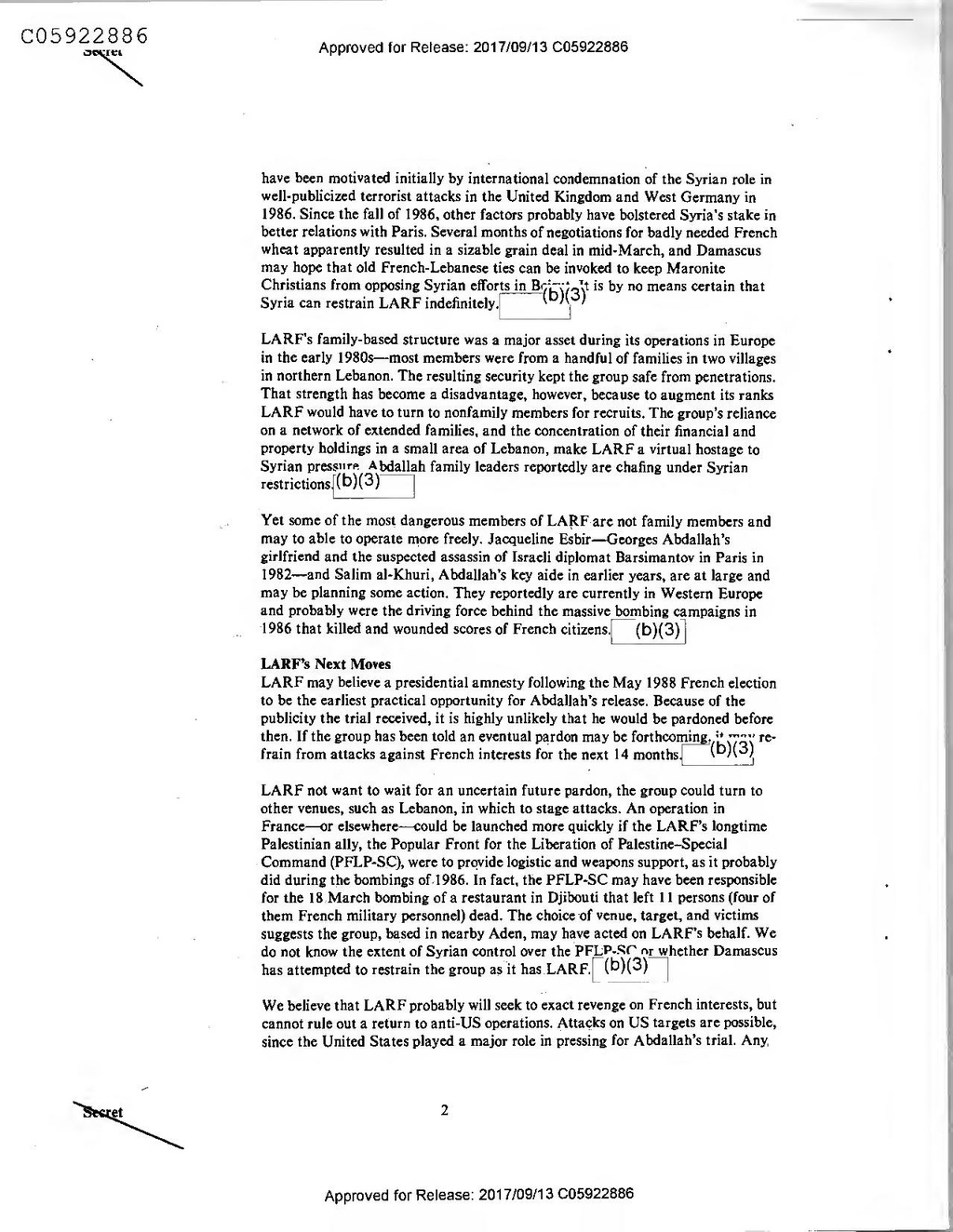have been motivated initially by international condemnation of the Syrian role in well-publicized terrorist attacks in the United Kingdom and West Germany in 1986. Since the fall of 1986, other factors probably have bolstered Syria's stake in better relations with Paris. Several months of negotiations for badly needed French wheat arently resulted in a sizable grain deal in mid-March, and Damascus may hope that old French-Lebanese ties can be invoked to keep Maronite
is Syria can restrain LARF indefinitely.
LARF's family-based structure was a major asset during its operations in Europe in the early 1980s—most members were from a handfUL of families in two villages in northern Lebanon. The resulting security kept the group safe from penetrations. That strength has become a disadvantage, however, because to augment its ranks LARF would have to turn to nonfamily members for recruits. The group's reliance on a network of extended families, and the concentration of their financial and property holdings in a small area of Lebanon, make LARF a virtual hostage to Syrian pressure Abdallah family leaders reportedly are chafing under Syrian restrictions (b)(3)
Yet some of the most dangerous members of LARF are not family members and may to able to operate more freely. Jacqueline Esbir-Georges Abdallah's girlfriend and the suspected assassin of Israeli diplomat Barsimantov in Paris in 1982-and Salim al-Khuri, Abdallah's key aide in earlier years, are at large and may be planning some action. They reportedly are currently in Western Europe and probably were the driving force behind the massive bombing campaigns in 1986 that killed and wounded scores of French citizens. (b)(3)
LARF's Next Moves LARF may believe a presidential amnesty following the May 1988 French election to be the earliest practical opportunity for Abdallah’s release. Because of the publicity the trial received, it is highly unlikely that he would be pardoned before then. If the group has been told an eventual pardon may be forthcoming, it may refrain from attacks against French interests for the next 14 months.
- (b)(3)
LARF not want to wait for an uncertain future pardon, the group could turn to other venues, such as Lebanon, in which to stage attacks. An operation in France-or elsewhere—could be launched more quickly if the LARF's longtime Palestinian ally, the Popular Front for the Liberation of Palestine-Special Command (PFLP-SC), were to provide logistic and weapons support, as it probably did during the bombings of 1986. In fact, the PFLP-SC may have been responsible for the 18 March bombing of a restaurant in Djibouti that left 11 persons (four of them French military personnel) dead. The choice of venue, target, and victims suggests the group, based in nearby Aden, may have acted on LARF's behalf. We do not know the extent of Syrian control over the PFLP.SC or whether Damascus has attempted to restrain the group as it has Larf. (b)(3)
We believe that LARF probably will seek to exact revenge on French interests, but cannot rule out a return to anti-US operations. Attacks on US targets are possible, since the United States played a major role in pressing for Abdallah's trial. Any.
2
Approved for Release: 2017/09/13 C05922886
